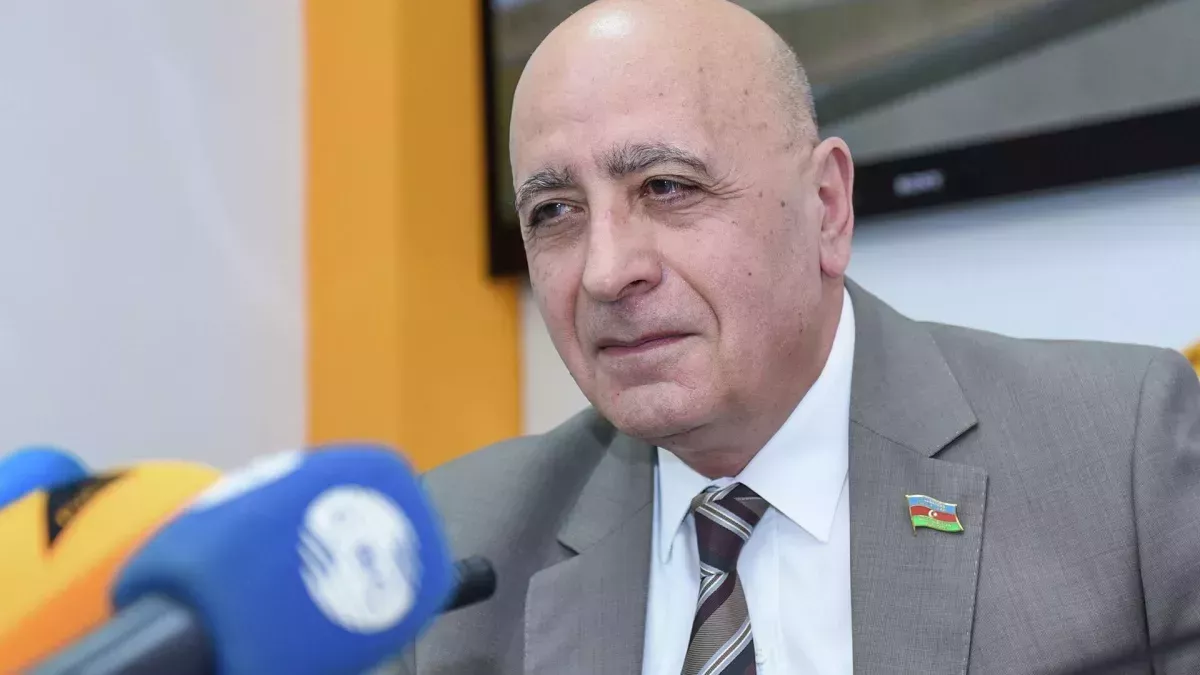End of Minsk Process marks new era in South Caucasus diplomacy Expert insights on emerging regional architecture
Azerbaijan’s Ministry of Foreign Affairs reported that on September 1, 2025, the OSCE Council of Ministers decided to terminate the Minsk Process and all related structures — including the Personal Representative of the current Chairperson-in-Office and the High-Level Planning Group.
All OSCE decisions regarding the former Armenia-Azerbaijan conflict have been declared invalid. This marks the reaffirmation of Azerbaijan’s control over its previously occupied territories and the international recognition of the peace agenda proposed by Baku.
Leading experts shared their views on the new regional situation with Caliber.Az.

A geopolitical and security expert and Editor-in-Chief of The Washington Outsider, Irina Tsukerman, noted that the closure of the OSCE Minsk Process marks the end of an era in post-Soviet diplomacy, when frozen conflicts were kept in a state of artificial legal and political uncertainty under the auspices of international institutions.
“This process was created in the early 1990s to seek a peaceful resolution to the Armenia-Azerbaijan conflict, but over time it became a tool for symbolic control and balancing the interests of great powers. Its termination reflects a new geopolitical reality: the conflict was resolved not through mediation and prolonged negotiations, but through Azerbaijan’s actual restoration of its territorial integrity.
The decision has a profound legal dimension. It means that all previous OSCE documents, resolutions, and procedures related to the Minsk Process lose their validity. For the first time, an international organisation has recognised that the status quo maintained for decades has become irreversible. For Azerbaijan, this consolidates international recognition that the status and ownership of the formerly occupied territories are no longer subject to negotiation. It also weakens the arguments of those who tried to cast doubt on the finality of these territorial changes.
The decision also confirms a new role for the United States in the region. Washington became the venue where the parties agreed on a joint letter, initiating the dismantling of the Minsk Process. For American diplomacy, this is a signal of its ability to act as an arbiter and guarantor of post-war settlement, despite the decline of its traditional influence in the South Caucasus. For Europe, on the other hand, it is a setback.
The OSCE long symbolised European mediation. Its structures are now recognised as having lost relevance. Accordingly, the role of the European Union and individual European countries is significantly diminished,” the expert said.

According to her, the closure of the Minsk Process is even more painful for Russia.
“Moscow, as co-chair of the Minsk Group, used this mechanism for decades to maintain its presence and influence in the region. Now that tool is gone. Russia loses a lever of influence over Baku and Yerevan legitimised by international institutions. Considering that Moscow is already weakened by the war in Ukraine and its internal crisis, this development symbolises its political retreat from the South Caucasus.
Armenia finds itself in a difficult position. On one hand, agreeing to dismantle the Minsk Process signals recognition of the new reality and a willingness to build relations with Azerbaijan without relying on external mediation. On the other hand, this decision creates tension domestically, where part of the elite and opposition sees it as a final abandonment of the struggle for a special status for the former Armenian enclaves.
For Yerevan, it is a step opening the way to a new phase of peacebuilding, but it also carries significant domestic political risks.
For Azerbaijan, it is an undeniable diplomatic triumph. The country has demonstrated its ability not only to restore control over its territories but also to consolidate this achievement within the international legal and institutional framework. Unlike many other post-Soviet conflicts, where territorial disputes remain unresolved, Azerbaijan has achieved the definitive removal of a long-standing issue from the international agenda.
At the regional level, this decision strengthens the trend of establishing direct agreements between South Caucasus states without constant external interference.
If Azerbaijan and Armenia continue on the path of bilateral settlement, it will create conditions for a more stable regional security architecture. Türkiye receives additional confirmation of the correctness of its strategy in supporting Azerbaijan and integrating the region into broader economic and infrastructure projects,” Tsukerman explained.
However, she noted, the decision does not satisfy those accustomed to using frozen conflicts as a tool of geopolitical pressure.
“Primarily, this concerns Russia and the European centres that sought to maintain their mediating roles. For Iran, the disappearance of this format, which it could influence indirectly through the Armenian side and regional tensions, is also significant. Losing such a mechanism means that future crises are more likely to be resolved through regional initiatives and direct negotiations with U.S. participation, rather than through traditional multilateral institutions.
The closure of the Minsk Process is a historic turning point. It dismantles a symbol of post-Soviet diplomatic inertia and affirms the principle that conflicts can be definitively resolved if a state demonstrates determination and the ability to restore its rights. It is also a warning to other regional actors that the era of long and fruitless negotiations under the auspices of international organisations is ending, and the future will be determined by actions on the ground and direct agreements between parties.
This is not only about Armenian-Azerbaijani relations. The international architecture established after the Cold War no longer functions as it once did. The OSCE has lost its capacity to act as a guarantor of stability, while new centres of power are creating alternative formats. The South Caucasus is becoming a space where a new model of conflict resolution is taking shape: regional states take the initiative into their own hands, and the role of the West is limited to providing political and legal legitimacy,” Tsukerman concluded.

Azerbaijani MP and political analyst Rasim Musabayov emphasised that, as is well known, all OSCE decisions are made by consensus.
“It should be noted that this was a joint request from Azerbaijan and Armenia, stating that, with the normalisation of relations and the achievement of peace, there is no longer a need for any mediation by the OSCE Minsk Group. Over the past five years, this mission has, in fact, been largely inactive.
The co-chairs of the Minsk Group — the United States, France, and Russia — also agreed that maintaining the structure (and especially the failed co-chairing format) no longer made any sense,” he said.
According to Musabayov, if anyone had attempted to oppose this decision, it would have been extremely difficult to justify their objections.
“Therefore, consensus was reached, and the Minsk Group has ceased its activities. The OSCE Secretary General has instructed that all work related to the transfer of remaining funds and equipment be completed by December 1.
I believe that over a quarter of a century, a substantial archive has accumulated. What has long been de facto will now be formalised de jure. The Minsk Group is going into the archives,” the deputy concluded.








